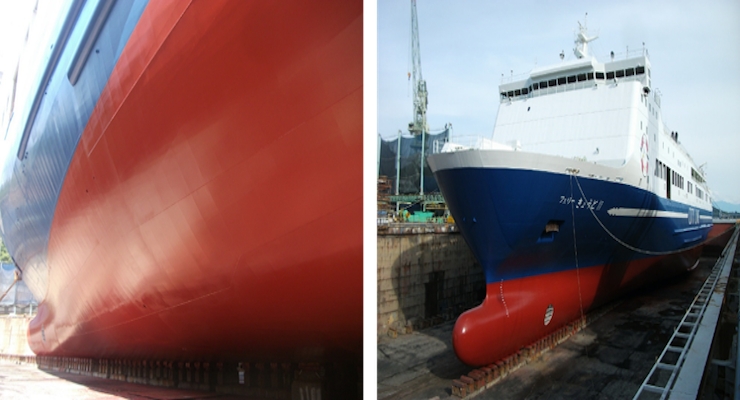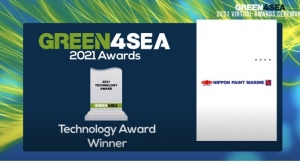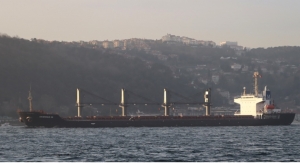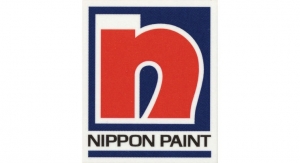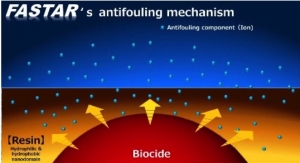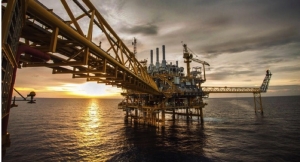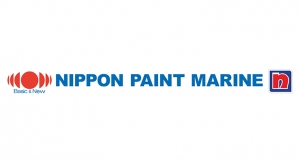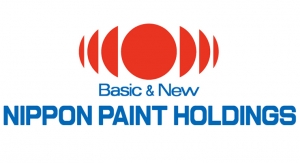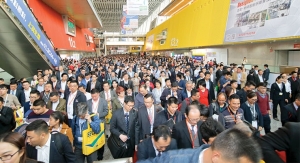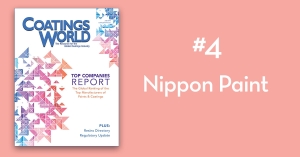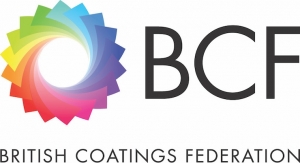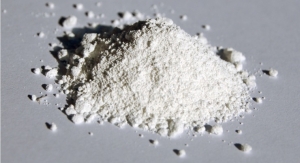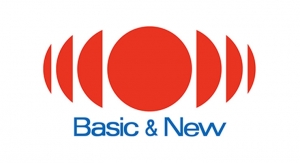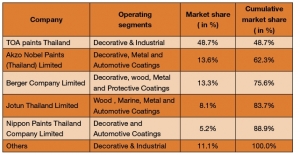09.11.18
Nippon Paint Marine introduced what is believed to be the world’s first biocide-free, low friction self-polishing copolymer antifouling technology.
Aquaterras – a name derived from the Japanese word for shining and the Latin for water – is an entirely new type of marine coating developed using neither biocide materials nor silicone.
“Typically ships’ antifouling paints have contained some form of biocide – copper, tributyltin, co-biocides. But the use of biocides today is strictly controlled by both national and international regulations such as the BPR in the EU,” Nippon Paint Marine Director John Drew said. “And while there are no immediate plans to further regulate the use of approved biocides, we cannot rule out the possibility that copper in antifouling will be regulated in the near future.
“Nippon Paint Marine has always looked to develop systems that go beyond the regulations. And with Aquaterras our chemists have achieved the impossible – a truly effective and efficient long-life, self-polishing antifouling paint without the use of biocides,” he added.
The technology adopts an advanced antifouling mechanism based around the anti-thrombogenic polymers used in the construction of artificial hearts and blood vessels in the medical sector.
The medical polymeric material was designed so that no biological substances or life would or could adhere to the surface so as to prevent blood clots (thrombosis). Using the technology in marine pants allows the new hydrolysis polymer reaction developed at Nippon Paint to continuously self-polishes. It also exposes active micro-domain structures to seawater ensuring that Aquaterras provides long-term antifouling performance.
“Biocides are normally comparatively heavy and rough in paint formulations but since Aquaterras is without such heavy pigments, we can achieve a remarkably glossy and smooth film is achieved,” said Drew. “This smoothness is further enhanced by its in-service self-polishing. Unlike silicone types, Aquaterras can be applied simply without the need for costly and time-consuming masking. It can also be overcoated in the same way as today’s SPC’s and can even be applied onto existing SPC’s if they are in good enough condition.”
Registered as a tin-free antifouling paint, Aquaterras has received approvals from all the major classification societies and is certified with no active ingredients in its Type Approval Certification.
A full and comprehensive technical Dossier has been compiled to demonstrate the testing carried out by Nippon Paint over years of research.
Aquaterras – a name derived from the Japanese word for shining and the Latin for water – is an entirely new type of marine coating developed using neither biocide materials nor silicone.
“Typically ships’ antifouling paints have contained some form of biocide – copper, tributyltin, co-biocides. But the use of biocides today is strictly controlled by both national and international regulations such as the BPR in the EU,” Nippon Paint Marine Director John Drew said. “And while there are no immediate plans to further regulate the use of approved biocides, we cannot rule out the possibility that copper in antifouling will be regulated in the near future.
“Nippon Paint Marine has always looked to develop systems that go beyond the regulations. And with Aquaterras our chemists have achieved the impossible – a truly effective and efficient long-life, self-polishing antifouling paint without the use of biocides,” he added.
The technology adopts an advanced antifouling mechanism based around the anti-thrombogenic polymers used in the construction of artificial hearts and blood vessels in the medical sector.
The medical polymeric material was designed so that no biological substances or life would or could adhere to the surface so as to prevent blood clots (thrombosis). Using the technology in marine pants allows the new hydrolysis polymer reaction developed at Nippon Paint to continuously self-polishes. It also exposes active micro-domain structures to seawater ensuring that Aquaterras provides long-term antifouling performance.
“Biocides are normally comparatively heavy and rough in paint formulations but since Aquaterras is without such heavy pigments, we can achieve a remarkably glossy and smooth film is achieved,” said Drew. “This smoothness is further enhanced by its in-service self-polishing. Unlike silicone types, Aquaterras can be applied simply without the need for costly and time-consuming masking. It can also be overcoated in the same way as today’s SPC’s and can even be applied onto existing SPC’s if they are in good enough condition.”
Registered as a tin-free antifouling paint, Aquaterras has received approvals from all the major classification societies and is certified with no active ingredients in its Type Approval Certification.
A full and comprehensive technical Dossier has been compiled to demonstrate the testing carried out by Nippon Paint over years of research.

